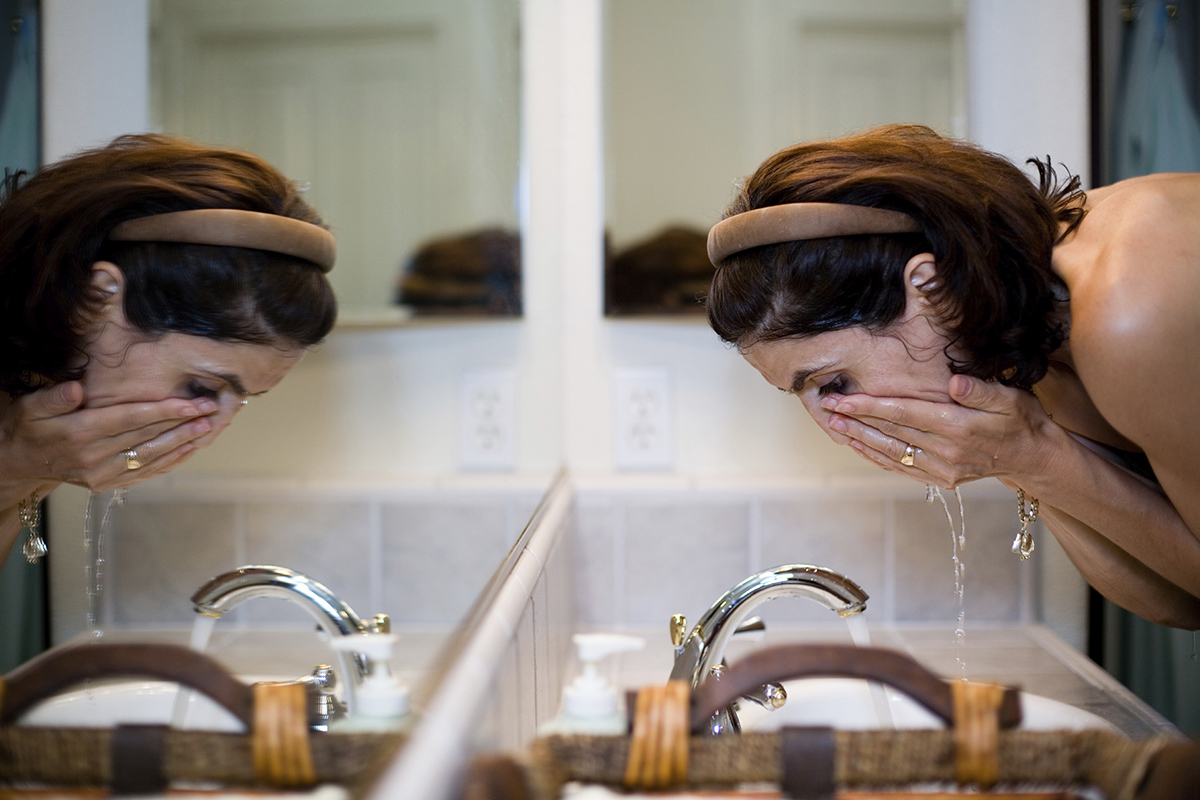A Dermatologist Debunks Acne Myths

Photo via istock.com/Slobo
When your skin is clear, so is your head: You can see that much of the acne-related information on the internet is dubious at best, and totally incorrect at worst. But when a pimple appears the night before a huge meeting, suddenly you find yourself frantically trying every too-good-to-be-true trick the blogs and message boards have to offer. We’ve all been there.
We asked John Fournier, a dermatologist at Boston Dermatology Group, to sift through the misinformation out there, and separate the acne myths from realities.
1. Bad hygiene leads to acne: Myth.
“Acne is absolutely not caused by poor hygiene,” Fournier says. “In fact, washing the face too frequently or too aggressively causes the skin to dry out. Dry skin responds by making more sebum, and more sebum is associated with more clogged pores.”
Stick to washing your face in the morning, before bed, and after you exercise, and don’t choose an industrial-strength cleanser. Fournier recommends La Roche-Posay, Neutrogena, and Cetaphil products.
2. Your diet affects your skin: (Likely) reality.
While research is ongoing, Fournier confirms that some foods—namely dairy products and high glycemic index foods, such as refined carbohydrates—have been linked to acne. That said, the severity of your acne should dictate how stringently you avoid certain things. “While foods are unlikely to be the sole cause of acne in a given individual, they may cause breakouts in those with acne-prone skin,” Fournier says.
3. Most at-home remedies: Myths.
Unsurprisingly, Fournier says many blogger-touted at-home remedies, like putting toothpaste or frozen cotton balls on zits, are not advisable. In fact, the toothpaste “cure” may even hurt skin. “Many toothpastes contain ingredients that can dry out pimples,” Fournier says. “These ingredients, however, can be irritating and can even burn the skin.”
4. Prescription medicines are better than over-the-counter products: (Usually a) myth.
People with severe, chronic acne may need prescription treatments, but Fournier says drugstore buys are fine for the typical individual. “Many patients find their acne can be controlled with a once daily application of a benzoyl peroxide wash,” he says. “Another effective over-the-counter treatment is salicylic acid, which works to exfoliate the dead skin cells that rest on the surface of the skin.”
5. Patients with acne should moisturize: Reality.
Though many people believe moisturizers can make skin oily, leading to more breakouts, Fournier repeats that overly dry skin can actually be the culprit of acne. Plus, he says, “acne treatments dry out skin and the skin needs hydration.” Just choose a non-comedogenic, oil-free, water-based product.
6. Makeup causes breakouts: (Probably a) myth.
“The majority of makeup, if not used excessively, will not contribute significantly to acne,” Fournier says, though he notes that some data has suggested the opposite. Again, he recommends playing it safe by looking for non-comedogenic brands.


